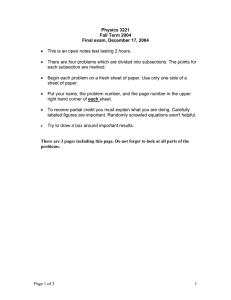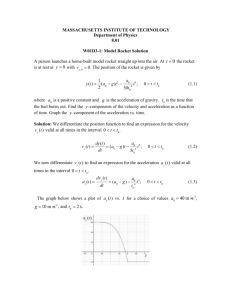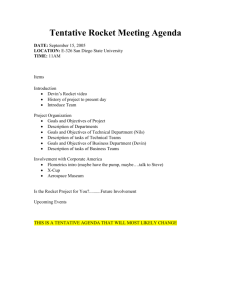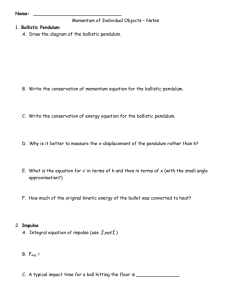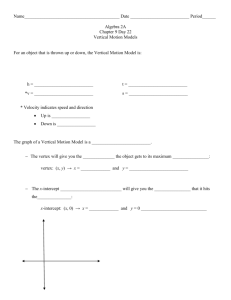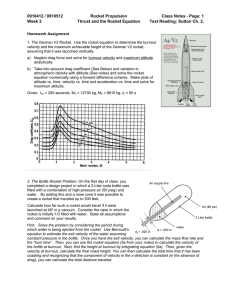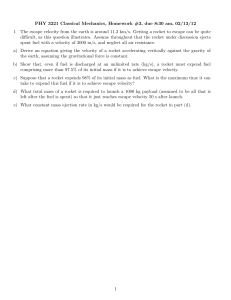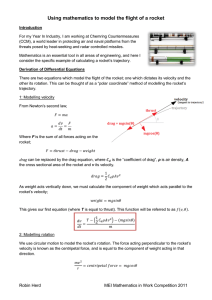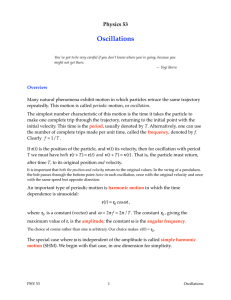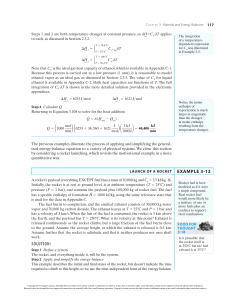Document 10453473
advertisement
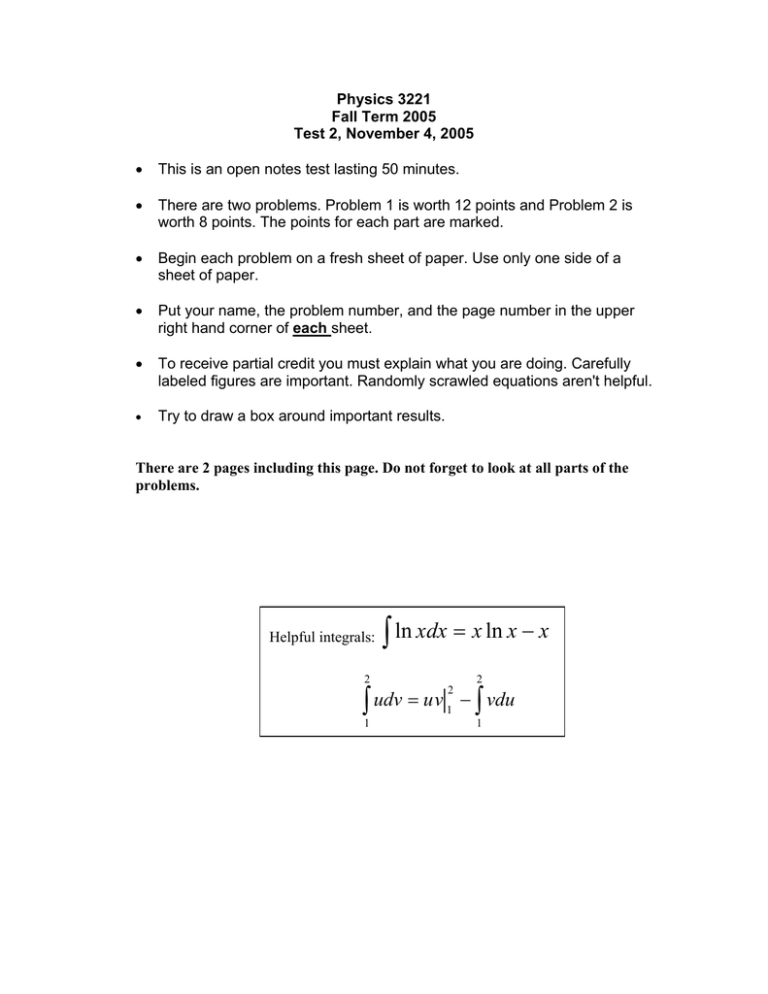
Physics 3221 Fall Term 2005 Test 2, November 4, 2005 • This is an open notes test lasting 50 minutes. • There are two problems. Problem 1 is worth 12 points and Problem 2 is worth 8 points. The points for each part are marked. • Begin each problem on a fresh sheet of paper. Use only one side of a sheet of paper. • Put your name, the problem number, and the page number in the upper right hand corner of each sheet. • To receive partial credit you must explain what you are doing. Carefully labeled figures are important. Randomly scrawled equations aren't helpful. • Try to draw a box around important results. There are 2 pages including this page. Do not forget to look at all parts of the problems. Helpful integrals: 2 ∫ ln xdx = x ln x − x ∫ udv = u v 1 2 1 2 − ∫ vdu 1 1. A single stage rocket takes off from Earth (it’s a well designed rocket so it doesn’t waste any fuel sitting at the launch pad). The exhaust velocity is u, the initial mass (at time t = 0) is m0, and the fuel burn rate is a constant α. a) What is the velocity of the rocket after a time t? (2 points) [Just write the expression from your notes]. b) Integrate this relation with respect to time and show that the height yb that the rocket reaches by the burnout time tb when all the fuel is burnt out is given by: (6 points) y b = ut b − 1 2 um m0 ln gt b − α m 2 [Hint: you have to use dm/dt = -α, and boundary condition y=0 and m=m0 at t=0.] c) Assuming a constant g throughout, how much further in height will the rocket go after burnout if the velocity at tb = vb? (4 points) 2. A grandfather clock has a pendulum of length l = 0.7 m and a mass bob of m = 0.4 kg. a) Assuming small oscillations find the undamped angular frequency ω0. (1 point) b) The maximum angle that the pendulum makes with the vertical is 0.03 rad. What is the total energy of the pendulum assuming that there is no damping force? (3 points) c) If a damping term is included then the amplitude of oscillations will decrease with time. Using the solution for the underdamped oscillator write down how the amplitude varies with time. The damping parameter is β (β = b/2m) and the amplitude at t = 0 is A0. (1 point) d) Using the expression obtained in (c) find out how much the total energy decreases in one time period τ. Hence show that for small β the decrease in total energy in one time period is: (3 points) ∆E = mg 2 A0 βτ l
